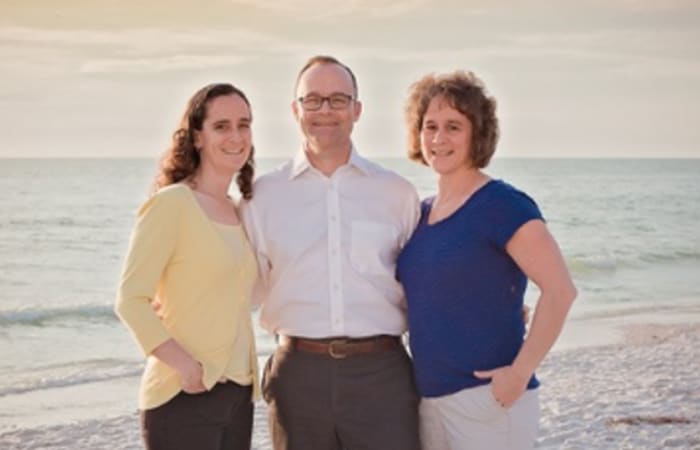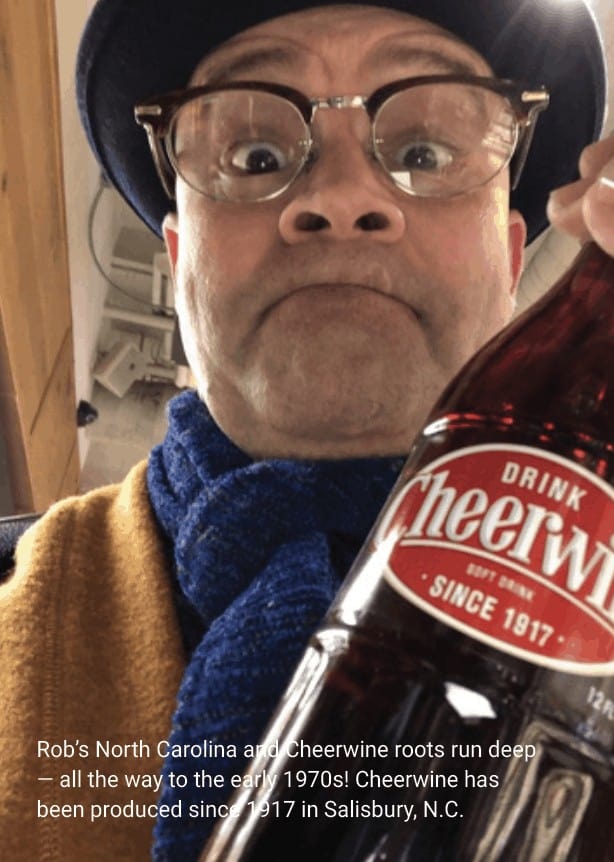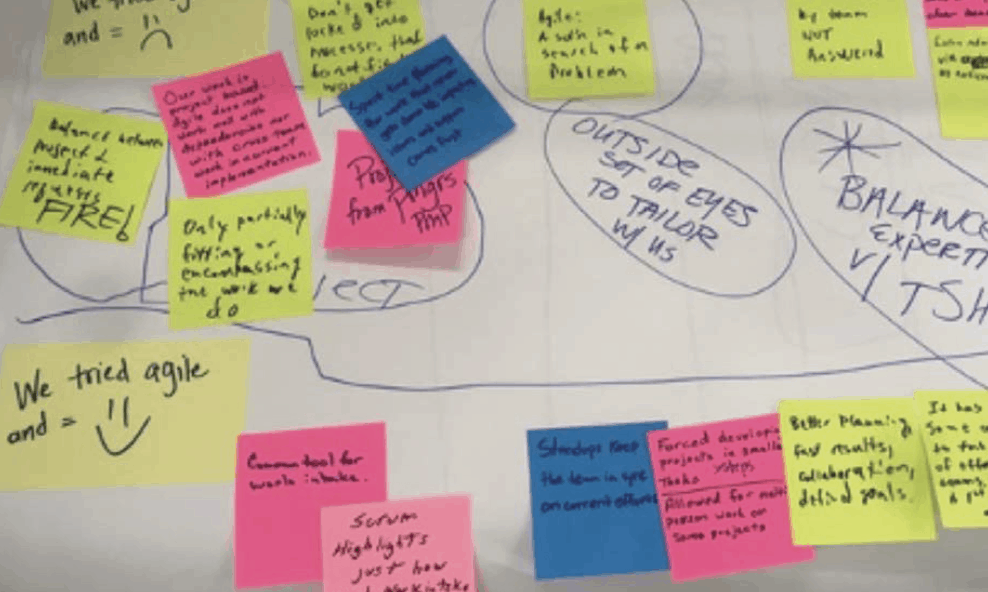Talk with Rob Shea and it’s hard to separate the Agile coach from the Pragmatic PMC-VI.
That’s because the veteran product manager has used foundational principles from both disciplines in building his customer-centric business worldview. The Philadelphia-area resident recently took some time between coaching assignments to talk with The Pragmatic about his work for DailyAgile, a training and coaching organization that helps companies adopt better ways of working and achieve better outcomes; product-managing pioneer online-learning programs; his vision of project management’s future; and how he likes to spend his time away from work (which includes managing a fantasy baseball team; running; and chauffeuring his two daughters, Lucy and Margot, to theatre and ballet rehearsals).
The Pragmatic: Describe your job as an Agile coach.
Shea: I help people and organizations embrace change in volatile, uncertain, and highly competitive environments. Many of our old ways of working were geared to fight change. I always start with, “Agile embraces, invites, and harnesses change while questing after value, quality, speed, and happiness. We believe in lots of continuous feedback and intense customer interaction.”
I like to use this analogy: When a project goes horribly awry, a company often forms a war room where people talk to each other, prioritize and seek clarity. Agile uses this process from the start. Agile is the peace room … a peaceful version of the traditional war room.
The Pragmatic: How did you get involved with Agile?
Shea: I’ve been a coach since February 2017 after I was cut loose in a corporate reorganization. I’ve been doing it along with leveraging what I learned in Pragmatic courses. They go well together. It’s been 3 and a half years and I’ve loved every minute of it, every day. From the small to the extra-large clients.
The Pragmatic: You were a product manager for years before going with Agile. Briefly describe that career.
Shea: I started as a product manager in 1995. Wow! It’s been 25 years. I managed a suite of web-based online courses for adults wanting to learn new job skills. Actually, we started out with CD-ROMs. I put some of the first laptops in New York City schools in the early 1990s. What really set my mind on fire was being out there with customers—K-12 students and adults, going to foster homes and inmates and corrections officers at Rikers Island. I was watching them have a quality educational experience and asking them what they wanted from our product. That’s Pragmatic 101.
The Pragmatic: Obviously, Pragmatic has been a great fit with your career as a product manager and Agile coach. How did it all begin?
Shea: In 2004, my employer, WebCT, was acquired by Blackboard. The marketing and product teams were taking Pragmatic training, and 2006 was my first exposure. I loved the content right away. It was very transformational. The expertise of instructors like Rich Nutinsky, Dave Daniels and Stacy Weber is astounding! They were all super high-quality workshops. There is data out there showing that 90% of business training is viewed as worthless. So, my antennae go out for expert people who engage you and make it stick. With Pragmatic, we get to hear, see, taste, and do all that these folks teach us.
The Pragmatic: You’ve said you hate to be considered a process guy, emphasizing the human factor and potential. Please elaborate.
Shea: First of all, I love technology. It is very powerful to Zoom with grandma, see people with disabilities extending their capabilities, or help nurses in Vietnam collaborate with nurses in New York. It’s an awesome and beautiful thing. But I’ve often seen technology throw our priorities out of tune during my 28-year career.
In my experience coaching all kinds of companies all over the place, when things really break down, it’s on the people side—we’re not valuing people and interactions over processes and tools, or customer collaboration over negotiating a statement of work. We all waste time and talent for lack of safe, courageous, respectful communication. To adopt better ways of working, we need more Mr. Rogers and less Twitter.
Technology can help or hinder but we all need to step up and take ownership. The cart too often pulls the horse. I get some strange looks when I tell my clients that their tools are using them and we need to flip the script. As an Agile coach, I’m always brought in when things need to change. 99.8% of the time, it’s the people, it’s the communication, it’s the leadership, not a process or technical matter.
The Pragmatic: Where do you see the product managing/marketing professions headed in the next five years?
Shea: I see a couple of things. First, organizations continue to stub at least nine of their toes in engaging and understanding customers. There is a great need for product managers and marketers. Organizations should use expert people to establish a set of priorities based on the right personas. It’s easy to drown in all the data. If you understand the customer and how to prioritize in a challenging market, you will always have a job, even when the robots take over.
Secondly, I see an evolution of the understanding of the product manager/owner role. Often the product owner is not in the room. Pragmatic teaches you that without a product manager, everyone else will fill the void. Half of our clients, very fancy companies, have way too many conversations without product managers and owners in the room. They say, “They’re too busy.” Come on now!
The Pragmatic: What do you like to do when you are away from the job?
Shea: I’ve been managing my woefully underperforming fantasy baseball team since the mid-90s. A dozen old friends get together every March for a 10-hour auction – at the moment, that’s on hold. Plus, I take my daughters (ages 15 and 12) to ballet and theater. They are awesome. I love to run. I’ve run for years. It used to be every day. But now my knees and age are catching up and it’s every other day. I also try to turn off all devices and talk to someone who sees the world differently.
The Pragmatic: You’re right, it’s great to interact with people who have different perspectives. But I get the sense that you like to talk shop with fellow Pragmatic-minded folks.
Shea: That’s because the Pragmatic community challenges you to think, to look at things differently. If I go into a business and the people know what the Pragmatic Institute is about, I’m going to be about four years ahead of my Agile compadres.
Author
-

Jim Fickess is a freelance writer in Chandler, Ariz. His career included being an editor for The Arizona Republic.











